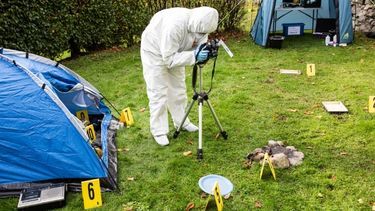
Forensic Scientist
Forensic Scientist
As a Forensic Scientist, you will analyse biological, chemical or physical samples collected as evidence during a criminal investigation. You will provide crucial scientific evidence which may link a suspect to the scene of the crime, the victim, or the weapon.
Once you graduate, you will have the skills to evaluate crime scenes and testify in court.
Necessary qualifications and skills
To work as a Forensic Scientist in Scotland, you will need a degree accredited by the Chartered Society of Forensic Sciences (CSFS)
Foundation in life sciencesResponsibilities
- perform blood grouping and DNA profiling
- analyse fluid and tissue samples for traces of drugs and poisons
- examine splash patterns and the distribution of particles
- provide expert advice on explosives and firearms
- analyse handwriting, signatures, ink and paper
- take part in developing new technologies
- recover data from computers, mobile phones and other electronic equipment
- attend crime scenes
- give impartial, scientific evidence in court
Personal qualities that will help you become a forensic scientist
- excellent communication skills
- critical thinking skills
- problem-solving skills
- emotionally resilient
- confident, analytical and thorough
Page Section
Working hours
Your standard working week will be 37- 40 hours per week, including evenings and weekends. Some individuals may be expected be on-call (in case of emergency).
Salary
The average base salary for a Forensic Scientist in the UK is £25,000 – £45,000 per year. A senior salary can reach over £50,000 per year.
Career prospects
You can choose to work in a specialist role such as anthropology, entomology or pathology. Alternatively, you could leave the laboratory to work as a casework examiner, a crime scene investigator or an expert witness.